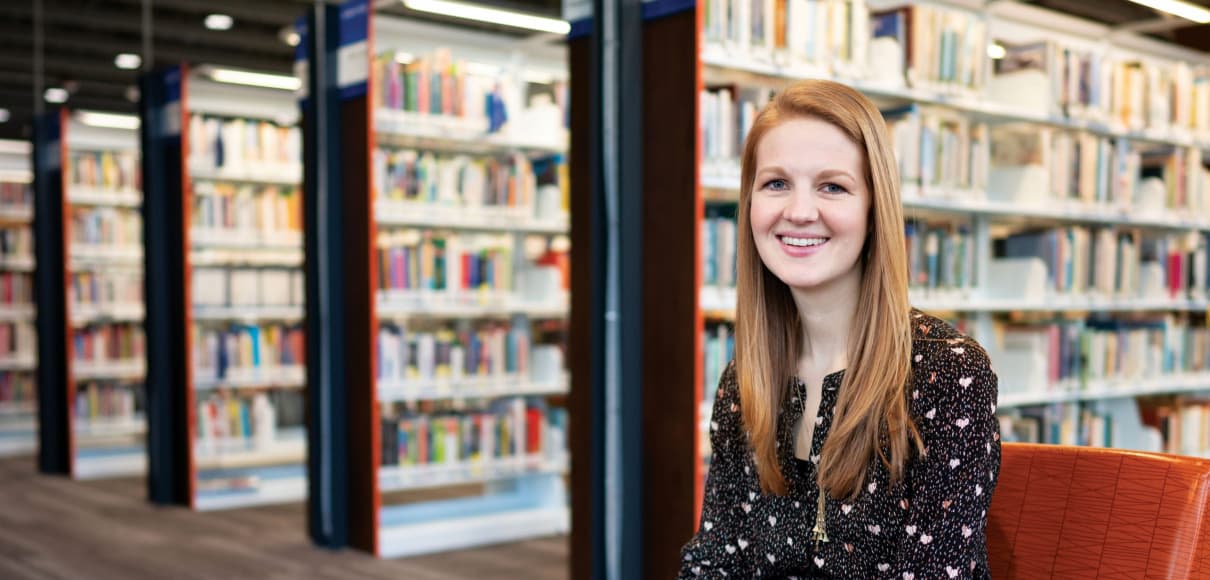When Mac* entered the Renton Public Library last summer, he had not showered, slept, or eaten in a while, but he was told someone at the library could help him find a place to sleep.
Within an hour of meeting him, Melissa Wirasnik Glenn ’05 had connected him with a local shelter and secured transportation to a center where Mac could shower and wash his clothes.
He told Glenn he was so hungry, he was having difficulty thinking. She sent him on his way with snacks and hygiene supplies donated by local programs.
Since April 2019, Glenn has connected more than 200 patrons like Mac with community organizations in her role as the health and social services coordinator at the Renton Public Library in Washington state.
People look at Glenn quizzically when she describes her job. “Why does a library need that?” they ask. Glenn explained it’s a natural fit.
“Libraries have always been places where people seek resources and information,” she said. “And as our communities change, the kind of resources and information that people are looking for also changes.”
Community changes include a broken mental health system and rampant poverty. More than 12,000
families experience homelessness in the area, and those in crises gravitate to the library, said Glenn’s supervisor, Melissa Munn. “There’s free access to computers and books, and it’s warm in the winter and cool in the summer,” Munn added.
Munn advocated for the position for years after her experience as a case manager for homeless youth. If clients missed an appointment, she often went to the library to find them.
Munn hopes it will expand across the 50 branches of the King County Library System. According to NPR, fewer than 40 libraries across the country support a similar role.
Glenn’s job varies daily, but most requests involve housing and mental health. For example, if someone risks eviction for an unpaid utility bill, she knows the organization that will pay the bill.
Glenn helped initiate a homeless resource event each month where local partners provide on-the-spot services, including flu shots, mental health assessments, free bus passes, and access to cell phones.
Glenn also trains library staff, offering Mental Health First Aid training and debriefs after upsetting incidents — tools, that help the staff “provide service to our patrons with compassion and empathy.”
Glenn is a licensed mental health counselor who graduated from SPU in 2005 with a bachelor’s degree in sociology. After earning a master’s in counseling psychology from The Seattle School of Theology and Psychology in 2012, she worked in a variety of community mental health and education settings until joining the library in April 2019.
Even with her experience, she’s well aware of her limitations. “I cannot always provide shelter that same day, or food, or funding to keep someone in housing,” Glenn said. “But I am hopeful that if [a patron] talked to me for 20 minutes or 30 minutes or an hour, they felt listened to, they felt cared for, they felt valued. And that in and of itself is transformative.
“I believe that this work is ministry. That’s because I am supporting people in some of the most vulnerable points in their life. And I view that as a privilege.”
*not his real name
Photo by Eugene Lee




